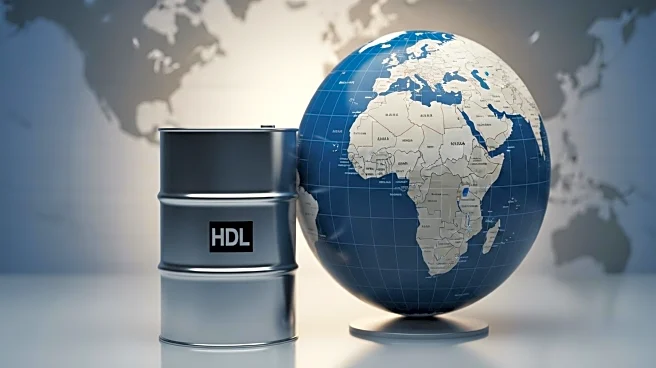What's Happening?
President Donald Trump announced his readiness to impose sanctions on Russia, contingent upon Europe strengthening its own sanctions. Trump criticized European countries for continuing to purchase oil from Russia, suggesting that their current sanctions are insufficient. He emphasized the need for Europe to align its actions with the United States' tougher stance. Trump's comments highlight ongoing tensions regarding Europe's energy dependence on Russia and the broader geopolitical implications of such economic ties.
Why It's Important?
The potential imposition of sanctions by the United States could significantly impact international relations and global energy markets. If Europe follows suit, it could lead to a decrease in Russian oil exports, affecting Russia's economy. This move may also strain diplomatic relations between Russia and Western countries, potentially leading to further geopolitical instability. For the U.S., aligning European sanctions with its own could strengthen its position in international negotiations and demonstrate a unified Western front against Russian policies.
What's Next?
The next steps involve diplomatic discussions between the U.S. and European leaders to negotiate the terms and extent of potential sanctions. European countries may face pressure to reduce their reliance on Russian oil, prompting them to seek alternative energy sources. The situation could lead to increased diplomatic efforts to resolve underlying tensions and establish a coordinated approach to sanctions. Stakeholders, including energy companies and political leaders, will likely engage in strategic planning to mitigate potential economic impacts.











